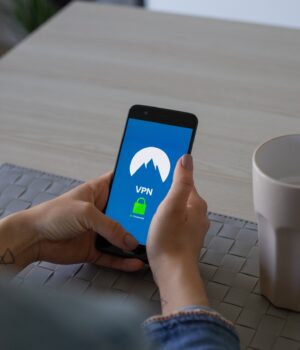Every time you connect to the internet without protection, you’re broadcasting your digital footprint to advertisers, hackers, and sometimes even government agencies. The right virtual private network acts like an armored tunnel for your data—but with hundreds of services claiming to be the best, how do you separate the genuine privacy tools from the snake oil? Not all VPNs are created equal, and some that dominate app store charts actually compromise the security they promise to provide.
The first red flag comes from free VPN services. When you’re not paying for the product, you become the product—this old adage holds painfully true for no-cost VPNs that harvest browsing data to sell to third parties. Even paid services vary wildly in their commitment to privacy. The gold standard includes independently audited no-logs policies, RAM-only servers that can’t store data long-term, and jurisdiction outside intelligence-sharing alliances like Five Eyes. These features matter more than marketing claims about “military-grade encryption,” which has become an essentially meaningless phrase in the industry.
ExpressVPN sets the benchmark for balancing speed with ironclad security. Based in the British Virgin Islands, it operates beyond the reach of mandatory data retention laws while maintaining consistently fast global server speeds. Their proprietary Lightway protocol outperforms traditional OpenVPN connections for mobile users, and the TrustedServer technology ensures no user data ever gets written to hard drives. What you won’t find are gimmicky features like “free password managers” that often indicate a company stretching beyond its core competency.
For open-source purists, ProtonVPN delivers transparency where other providers remain opaque. Developed by the same team behind ProtonMail, its apps have undergone third-party security audits, and the company publishes regular transparency reports detailing government data requests (they’ve received none that compromised user privacy). The Swiss-based service offers unique Secure Core architecture that routes traffic through privacy-friendly countries before exiting to the open web, creating multiple barriers against traffic correlation attacks.
NordVPN has evolved from marketing hype to genuine contender after addressing past security concerns. Their Panama registration provides strong legal protections, while the recent switch to colocated servers (fully owned rather than rented) reduces potential hardware vulnerabilities. The Meshnet feature stands out for tech-savvy users—it creates encrypted peer-to-peer connections between devices without routing through external servers, perfect for secure file sharing between offices or family members across borders.
Surfshark punches above its weight with unlimited simultaneous connections—a rare offering in an industry that typically limits devices. The Dutch provider recently transitioned to RAM-only servers and introduced Nexus, a proprietary technology that rotates your IP address across multiple countries mid-session. This makes tracking nearly impossible for even sophisticated adversaries. Their CleanWeb feature blocks ads, trackers, and malware at the network level without requiring additional browser extensions.
Mullvad VPN takes anonymity to extremes by not even requiring an email address to sign up. You can literally mail cash to their Swedish office to pay anonymously, or use cryptocurrency without cumbersome account systems. The flat-rate pricing (no “first year discount” games) and refusal to participate in affiliate marketing schemes demonstrate their commitment to transparency. While their server network is smaller than competitors, every node is owned directly rather than leased—eliminating middleman risks in data centers.
Corporate users with complex needs should evaluate Perimeter 81, which blends business VPN functionality with zero-trust network access. The Israeli-American company provides dedicated IPs, team management dashboards, and automatic Wi-Fi protection that activates when employees connect to untrusted networks. Unlike consumer-focused services, it integrates seamlessly with cloud platforms like AWS and Azure while maintaining strict activity logging policies that satisfy compliance requirements.
The protocol selection often matters more than the provider itself. WireGuard has largely supplanted OpenVPN as the speed and security leader, with implementations like NordVPN’s NordLynx and ExpressVPN’s Lightway optimizing the protocol further. Older options like L2TP/IPsec still appear in some clients but suffer from slower speeds and potential vulnerabilities. Serious privacy seekers should always disable IPv6 and WebRTC in their browsers—these can leak your real location even when connected to a VPN.
No discussion of VPNs is complete without addressing streaming and torrenting realities. Services like ExpressVPN and Surfshark consistently bypass geo-blocks on Netflix, BBC iPlayer, and other platforms because they aggressively rotate IP addresses and obfuscate traffic. For P2P users, port forwarding capabilities (available in Mullvad and ProtonVPN) significantly boost download speeds while maintaining security. Just remember that no VPN makes illegal activities legal—they simply provide privacy for lawful use cases.
Device compatibility separates versatile services from limited ones. The best VPNs offer native apps for Windows, macOS, Linux, iOS, and Android while also providing manual setup guides for routers, smart TVs, and gaming consoles. Browser extensions should be treated with skepticism—most are glorified proxies that don’t encrypt all traffic. Look for services that allow at least five simultaneous connections unless you’re opting for business-tier plans.
The final consideration is timing. VPN discounts abound around Black Friday and during summer sales cycles, but beware of multi-year lock-in deals with providers that might not maintain service quality. Monthly plans offer flexibility to test different services, though they cost significantly more over time. One reliable strategy involves using a provider’s money-back guarantee period to test real-world speeds in your location and verify unblocking capabilities for needed services.
Choosing a VPN ultimately depends on your threat model. Journalists in authoritarian regimes need different features than travelers wanting to watch hometown sports abroad. What remains constant is the need for vigilance—even the best VPN can’t protect users who ignore basic digital hygiene like software updates and phishing awareness. In an era of pervasive surveillance, a properly configured VPN serves as both shield and insurance policy against the growing risks of connected life.





